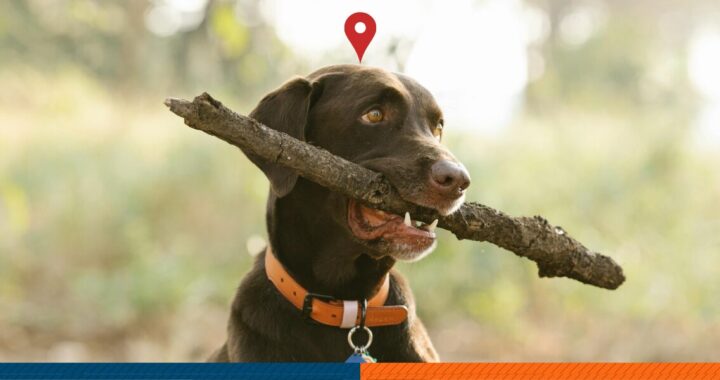If you’ve ever had that heart-stopping moment when your dog slipped out the front door or dashed after a squirrel, you know the anxiety that comes with not knowing where your pet is. Dogs are curious by nature, and no matter how well-trained they are, accidents can happen. This is where modern technology, like GPS tracking devices for pets, steps in to provide peace of mind. But is investing in one truly worth it for your pup? Let’s dive into the benefits, drawbacks, and things to consider before deciding.
What is a Pet GPS Tracking Device?
A GPS (Global Positioning System) tracker is a small device attached to your pet’s collar that uses satellite signals to pinpoint their location. Many of these devices connect to your smartphone through an app, letting you track your dog’s movements in real time. Some even provide extra features like activity monitoring, virtual “safe zones,” and health insights.
Benefits of Using a GPS Tracker for Your Pet
1. Peace of Mind for Pet Parents
Knowing you can instantly locate your dog if they wander off reduces the stress and worry that often comes with unexpected escapes. For owners of adventurous breeds like Huskies or Beagles, a tracker can be a lifesaver.
2. Quick Recovery if Your Dog Gets Lost
Time is critical when a pet goes missing. A GPS tracker allows you to act immediately rather than waiting for flyers, phone calls, or social media shares to reach someone who might spot your dog.
3. Safer Outdoor Adventures
If you love hiking trails in Maryland’s beautiful state parks or letting your dog explore off-leash areas, a tracker gives you the confidence that your pup won’t disappear from view for long.
4. Health and Activity Monitoring
Many GPS devices double as fitness trackers, monitoring your dog’s steps, calories burned, and rest periods. This can be helpful for weight management or keeping an eye on senior dogs.
5. Geofencing Features
Some trackers allow you to set a “safe zone” around your yard or property. If your pet leaves that area, you’ll get an alert on your phone right away.
Things to Consider Before Buying
1. Subscription Costs
Most GPS trackers require a monthly or annual subscription fee for satellite and cellular network access. Prices vary, so factor this into your budget.
2. Battery Life
Some devices last just a couple of days before needing a recharge, while others can last weeks. Consider how often you’re willing to charge it, especially if your dog spends long periods outdoors.
3. Size and Comfort
For small dogs, the device should be lightweight and not bulky on their collar. Always make sure it doesn’t cause irritation.
4. Coverage and Reliability
Not all GPS trackers work in every region. If you’re in more rural parts of Maryland or traveling to remote areas, check whether the device provides reliable coverage there.
5. Durability
Dogs are active, and their gear needs to keep up. Look for waterproof and rugged devices if your pup loves to swim, dig, or roll in the mud.
Alternatives to GPS Trackers
While GPS trackers are helpful, they shouldn’t replace traditional safety measures. Microchipping your dog is still essential since it serves as permanent identification if your pet is found without their collar. Strong fencing, reliable recall training, and ID tags are equally important parts of keeping your pet safe.
Who Benefits Most from a Pet GPS Tracker?
- Owners of escape artists: Dogs who are prone to slipping out the door, digging under fences, or squeezing through gates.
- Outdoor adventurers: Pet parents who love hiking, camping, or visiting large parks with their dogs.
- Families in busy neighborhoods: Living near traffic or crowded areas makes quick recovery even more critical.
- Owners of senior dogs or dogs with health issues: A GPS tracker provides added safety if they wander or get confused.
The Big Question: Is It Worth It?
For many Maryland dog owners, a GPS tracker is an extra layer of security that complements training, microchipping, and everyday precautions. It’s not a must-have for every pet, but it can be a valuable tool for active families or those with particularly curious dogs.
At Off Leash K9 Training Maryland, we emphasize that the foundation of pet safety is strong obedience training and recall. A GPS tracker can help, but the most reliable safeguard is knowing your dog will come back when you call, no matter the distraction. If you’re considering a GPS device, pair it with consistent training to create the safest, happiest life for your pup.

